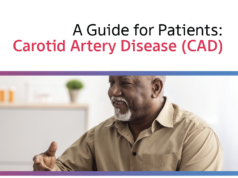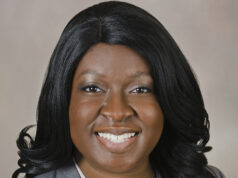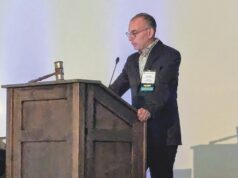In the early 1950s, an aspiring teen pianist named Herbert Dardik got his big break – a chance to play on the “Ted Mack Amateur Hour.”
Sadly, he didn’t win. He was down but not out until the family’s piano teacher finally told him, “Your brother Irving has talent. You are a hard worker.” That was the last straw.
Happily for vascular surgery, he gave up on a musical career and ended up becoming a surgeon.
He almost didn’t become a vascular surgeon because he found it disheartening. During his early training, he said, “Usually our leg biopsies failed and became amputations. Our carotids failed and became strokes, and an aneurysm, if (the patient were) still alive after 13 days, would not be for long.”
But over time, vascular surgery benefited from an explosion of innovation and research. “Today,” Dr. Dardik said, “it’s a different world.”
He built his career and reputation over many years at Englewood Hospital and Medical Center in New Jersey, where he still, at age 82, holds regular office hours, runs student and resident programs, and works in his research lab.
Dr. Dardik has been honored at this year’s Vascular Annual Meeting with the Society’s highest honor, the Lifetime Achievement Award.
According to nominator Richard Lynn, MD, Dr. Dardik is the “first true private practice/community practice individual to win this award. Dr. Dardik is the quintessential complete physician, surgeon, teacher, researcher, clinician, community practitioner/academician, father, husband, brother, and respected colleague.”
The SVS Fellows Council selects the Lifetime Achievement recipient to recognize that member’s outstanding and sustained contributions both to the profession and to the SVS, as well as exemplary professional practice and leadership.
Dr. Dardik is known for his clinical research and his pioneering contributions in lower extremity bypass surgery. His innovative work on the umbilical vein graft, the first bioengineered biologic graft, earned him the Hektoen Gold Medal from the American Medical Association. This work led to his development of the distal arterio-venous fistula as an adjunct to small-vessel bypass in order to enhance patency.
Currently, he is exploring the use of the umbilical cord artery as an aortic interposition graft in the rat. This murine model is also used to enhance resident skills for extremely challenging surgeries. The laboratory also serves as a training site for high school and college students interested in science and medicine. Since 1996, more than 300 high school juniors and seniors have come under the influence of Dr. Dardik.
He is a director and founding member of the Bloodless Program at Englewood and also established one of the earliest wound care centers and approved vascular laboratories. He was an early advocate of completion angiography, completion sonography, and avoidance of radiation in the operating room and has designed and developed vascular tools including clamps, tunnelers, and retractors.
Further contributions include his work on the nationalization of the Society for Clinical Vascular Surgery and as a founding member of the Eastern Vascular Society and the Vascular Society of New Jersey. He served all three as president.
He has given nearly 450 invited lectures and chaired an annual Vascular Symposium for 15 years. His numerous publications have enabled him to mentor his students in writing in addition to how to read the enormous body of literature.
His pioneering work in crural revascularization was recognized in the book Band of Brothers, Creators of Modern Vascular Surgery.
Just last year he was awarded the Julius Jacobson Teaching Award at Mt. Sinai Medical Center in New York City as an outstanding mentor. Over the past four decades he trained more than 40 vascular trainees in his vascular fellowship program. To this day, he retains the title of Chief Emeritus of Vascular and General Surgery at Englewood Hospital Medical Center as well as the title of Professor of Surgery.
He has also seen his love of medicine passed on to each of his three children: Alan, a vascular surgeon (and SVS member), Michael, a pathologist, and Sharon, a pediatrician.
If asked about his retirement plans, he’ll demur.
“What’s that word? I’ve never heard that word! It’s so much fun I cannot possibly leave,” he said. “I look forward to coming in, but now I don’t have to put on the alarm clock for 5 a.m. and that has been terrific.”
He maintains there is one other reason he stays on at Englewood. “I have the best office. I can’t give it up!”













